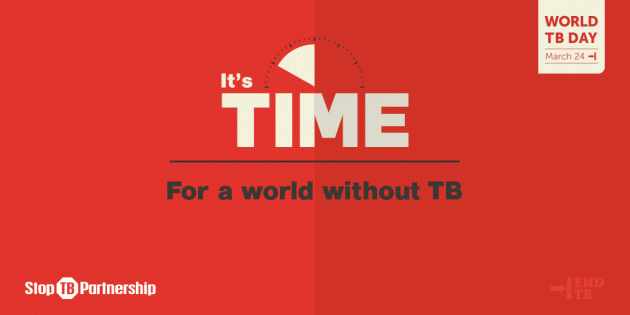It’s time! Let’s End Tuberculosis in Nigeria

FOR IMMEDIATE RELEASE
Lagos, Nigeria
March 24th, 2019
It’s time!Let’s End Tuberculosis in Nigeria
…We Need Your Help to Find and Treat TB cases
Lagos Nigeria: As Nigeria joins the world to celebrate this year’s World TB Day on Sunday March 24, 2019, Development Communication calls on all Nigerians to protect their family members from the menace of the highly infectious disease. TB kills 18 Nigerians every hour and 4,500 people globally every day. The theme for this year’s World Tuberculosis Day is IT’s TIME. World TB Day is a great opportunity to raise more awareness among people on the need to end a curable illness.
It is estimated that 407,000 people in Nigeria have TB each year. This is the estimated number of HIV negative people that have the disease. In addition there are an estimated 63,000 HIV positive people that get TB each year. An estimated 115,000 HIV negative people die from TB in Nigeria each year and an estimated 39,000 HIV positive people also die. It is difficult to appreciate what it means for 154,000 people to be dying each year!
Devcoms Program Director, Akin Jimoh stated that all Nigerians need to be concerned about the missing cases of TB and “we must all be in the forefront to find and treat TB cases” in the country. “We did it for Human Immunodeficiency Virus (HIV) and now the cases are on the downward spiral. We need to help ourselves to find and treat TB,” he added
The National Coordinator, National Tuberculosis and Leprosy Control Programme Department of Public Health, Federal Ministry of Health, Abuja, Dr. Adebola Lawanson said as part of the bold step in finding the missing TB cases in the country, the Federal Ministry of Health with support from partners is rapidly expanding TB diagnostics and treatment services to more sites across the country.
According to the 2017 Global TB Report, Nigeria is among the 14 high burden countries for TB, TB/HIV and MDR-TB, ranking 7th among the 30 high TB burden countries and 2nd in Africa. Forty-seven Nigerians develop active TB, seven of which are children, every hour. One of the major challenges of TB response in Nigeria is attributed to low TB case finding both in adult and children. This is attributed partly to poor knowledge about TB that influence the health seeking behaviour of people, and low TB treatment coverage.
This is why the theme for this year’s World TB Day; IT’S TIME is enjoining the young, old and all stakeholders involved to come together to take action to make Nigeria a TB free country.
According to World Health Organization, about one-third of the world's population has latent TB, which means people have been infected by TB bacteria but are not (yet) ill with the disease and cannot transmit the disease. People infected with TB bacteria have a 10% lifetime risk of falling ill with TB. However, persons with compromised immune systems, such as people living with HIV, malnutrition or diabetes, or people who use tobacco, have a much higher risk of falling ill.
In 2017, about 1.7 million people including over 250,000 children globally, died of TB-related causes. Over 95% of TB deaths occurs in low and middle-income countries especially in Africa.
Development Communications Network is a global leader and one-stop shop in strategic communication, innovative programming for development information, advocacy, health promotion, community action for social change and sustainable human development.. Also a media organization with resources to help the media in reporting science, public health and social issues
Vision
A world where there is readily available information towards decision making and a sustainable healthy society
Mission Statement
Development Communications Network is dedicated to strategic communication, advocacy and approaches for sustainable development of societies through innovative ideas, programming and content development that educates, informs and inspires social change.












